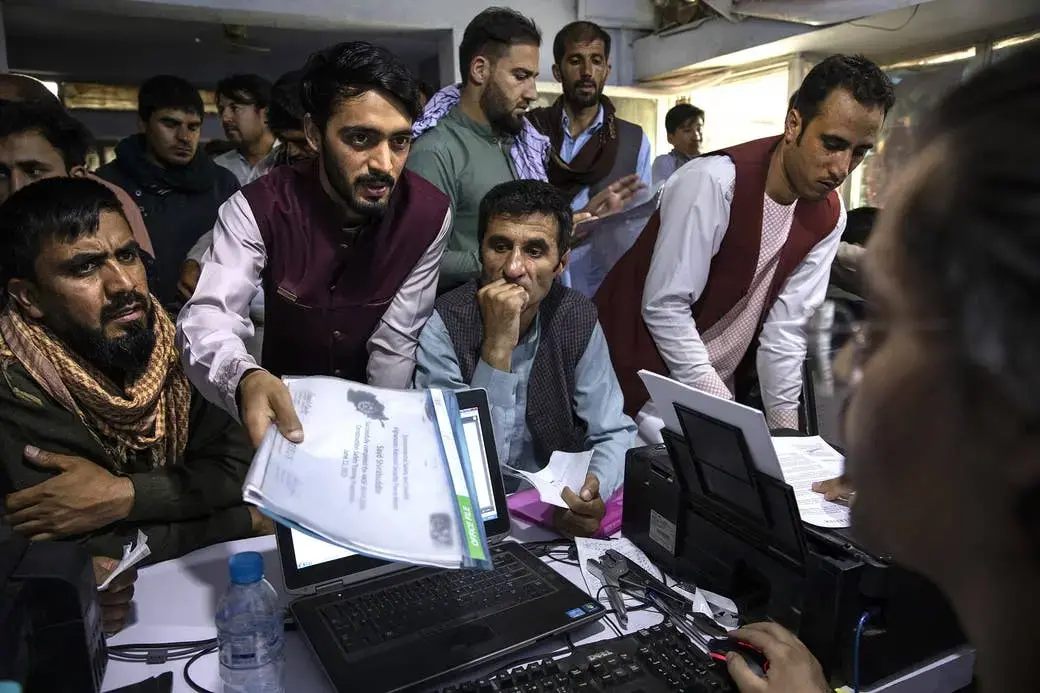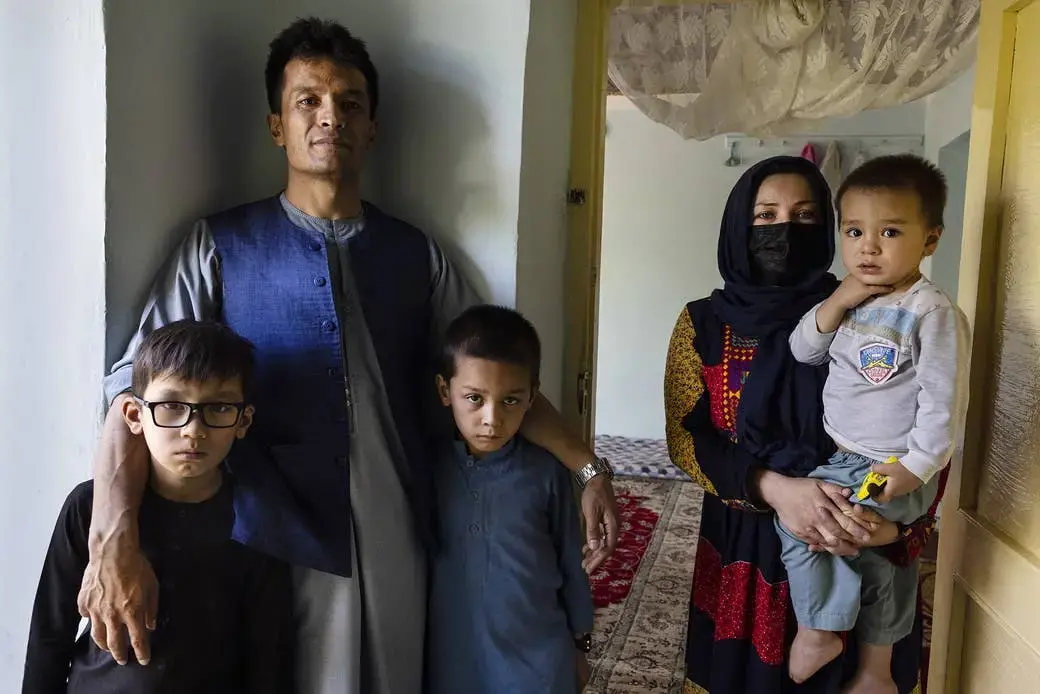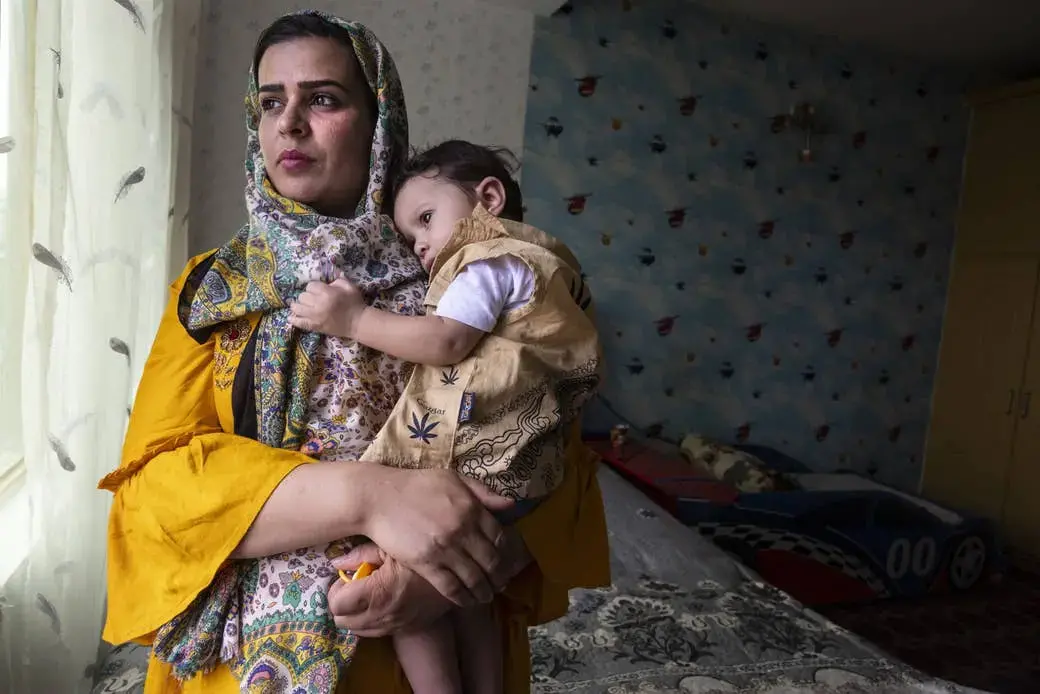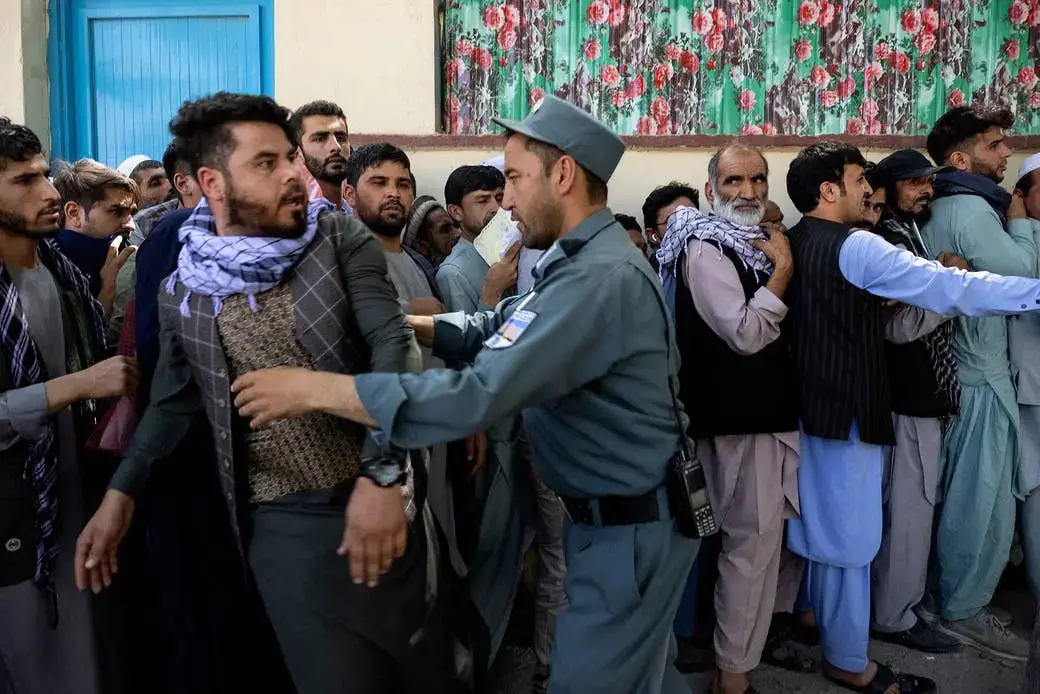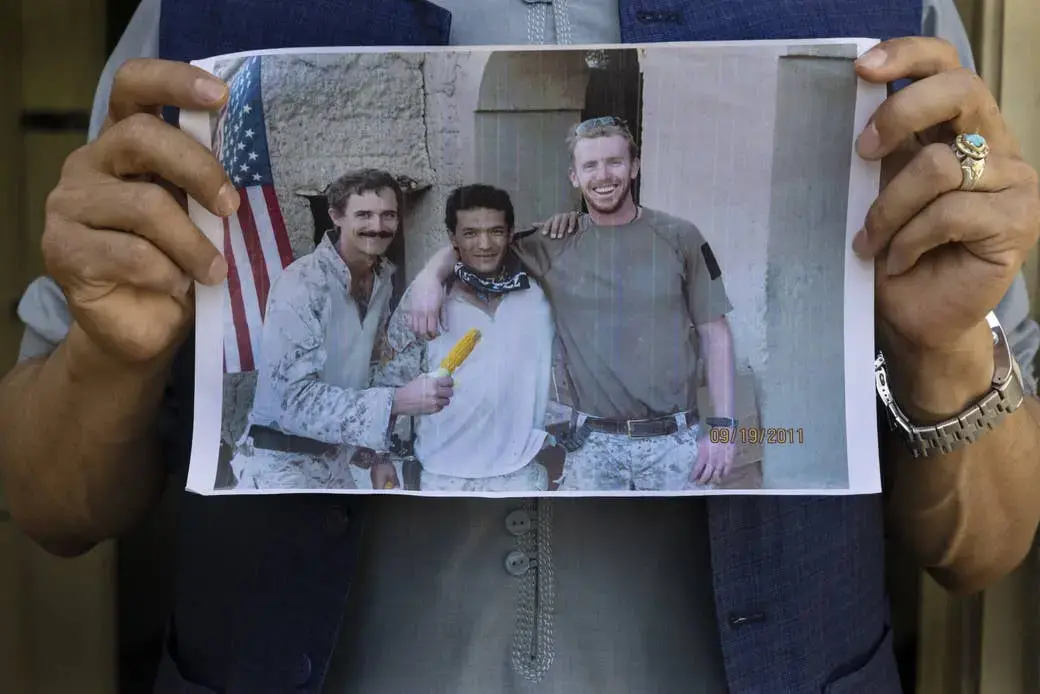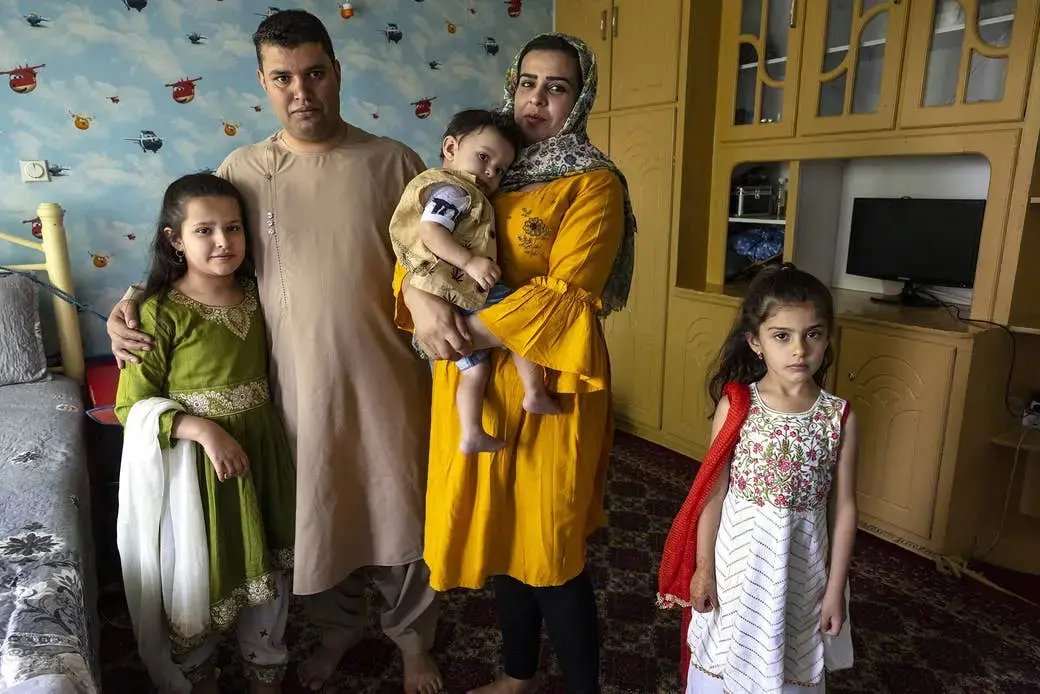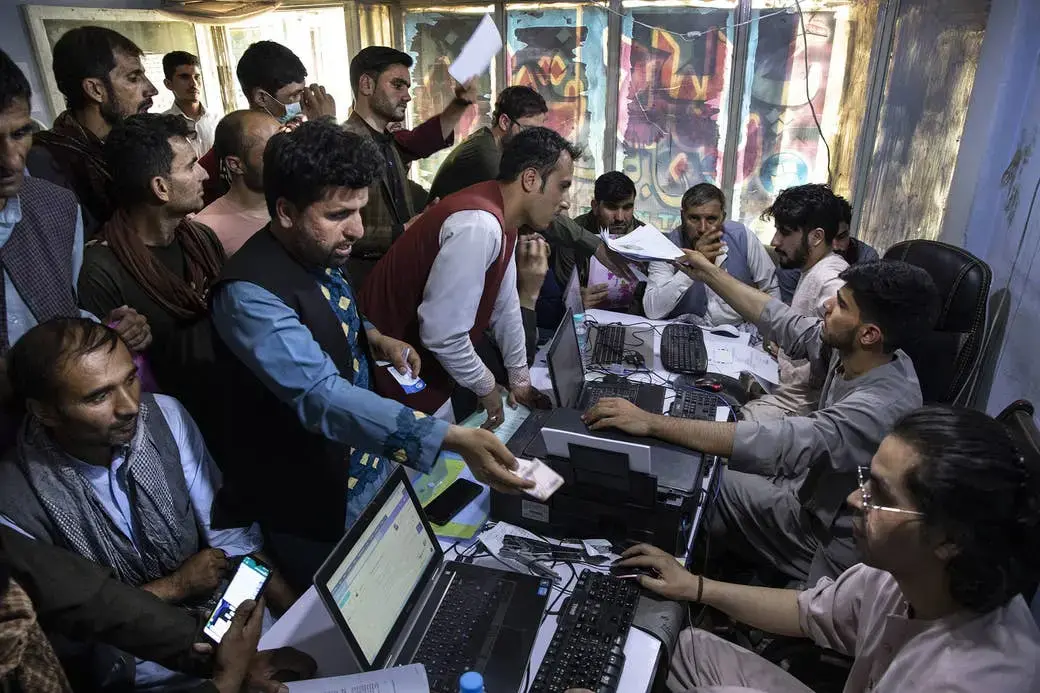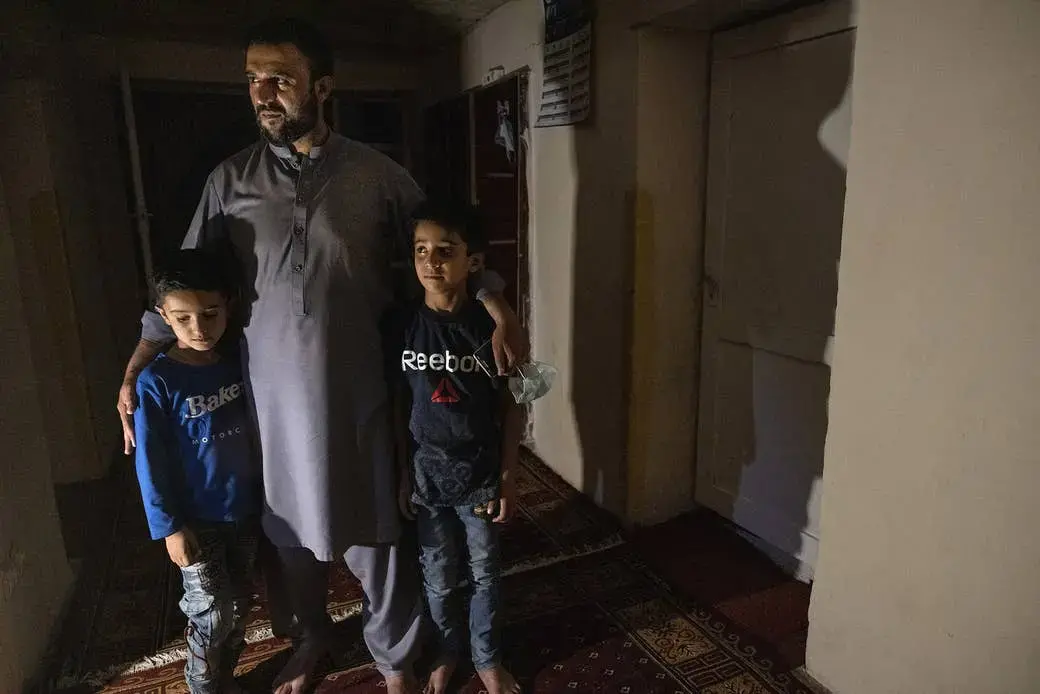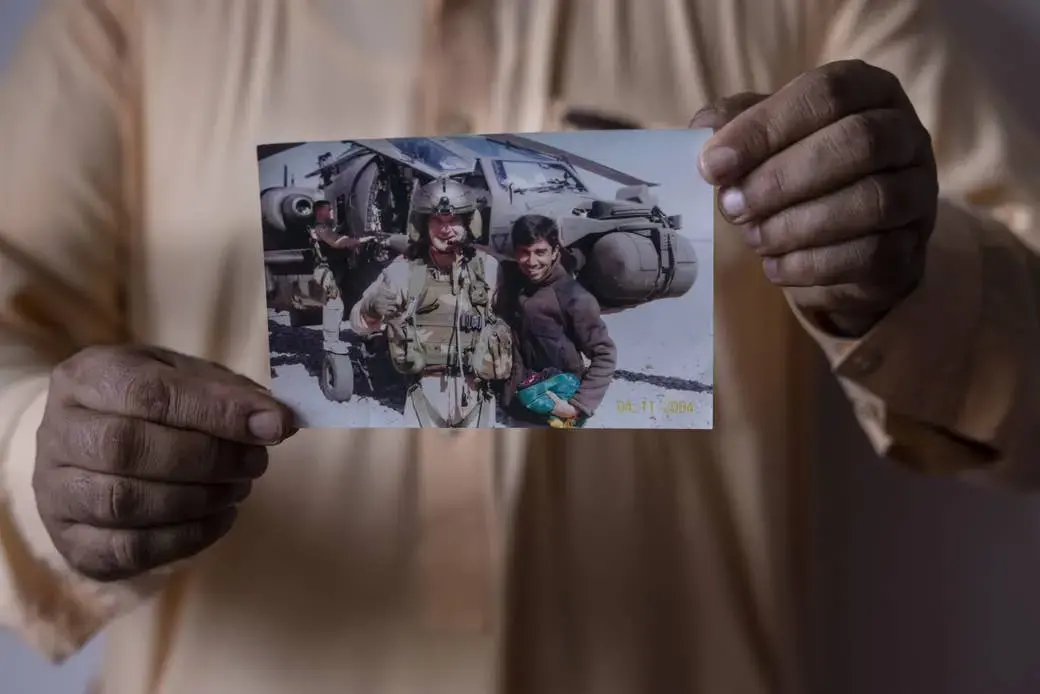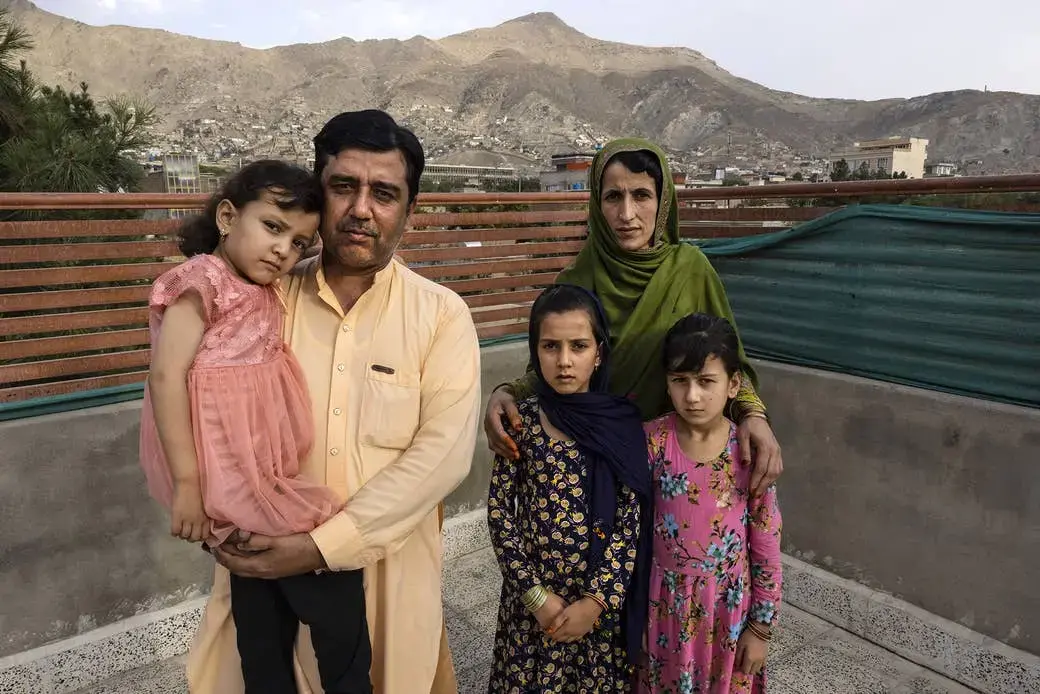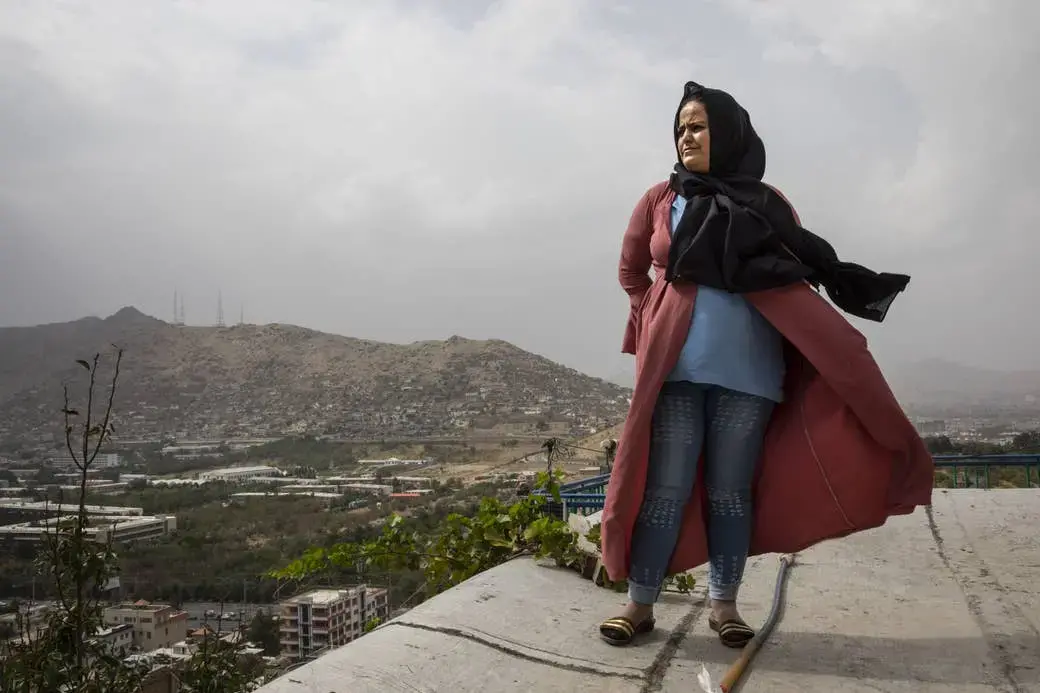Abdul Rashid Shirzad is one of many interpreters and support staffers to the American military apparatus in Afghanistan who have been left scrambling for visas to exit the country out of fear of repercussions for their work as Kabul falls to the Taliban.
"We have protected [American] brothers, sisters, husbands, wives, and sons in the Army. Now their government is leaving us behind for the enemy to cut our heads off,” Shirzad, an interpreter who worked for the US Navy SEALs in Afghanistan, told BuzzFeed News.

As a nonprofit journalism organization, we depend on your support to fund more than 170 reporting projects every year on critical global and local issues. Donate any amount today to become a Pulitzer Center Champion and receive exclusive benefits!
Paula Bronstein, who has been working as a photojournalist in Afghanistan throughout the 20-year war, documented those seeking a Special Immigrant Visa (SIV) to leave the country.
According to the State Department, any Afghan or Iraqi citizen who has worked directly for the US military or the embassy is eligible for an SIV, but the visa requirements exclude anyone who was hired through a contracting agency, and only 50 visas are allocated per fiscal year.
The visas are in high demand as the country’s capital fell faster than anticipated, leaving many uncertain about their future under the Taliban.
"The withdrawal put lots of lives in danger,” Shirzad told BuzzFeed News via text message. "The Embassy put lots of lives in danger since a long time ago for denying [visas] for no reason."
The SIV process is cumbersome and often opaque, relying on luck and, in some cases, who you know. Shirzad’s initial request for a visa in 2016 was denied for reasons unknown to him. He is now being relocated to Ukraine with the help of an aid organization that has been facilitating visas out of Afghanistan, although his flight is delayed indefinitely due to space issues on American bases.
"I just need a safe place for now," he said. "It doesn't matter if it's Ukraine or any other country."
Same Sharifi, an interpreter, sent an audio message to Bronstein on Thursday as he approached the Kabul airport to try to leave Afghanistan on an SIV. In his message, gunshots can be heard in the background. Thousands of people trying to evacuate overran the airport this week, in scenes that have shocked the world. Sharifi said he received an email from the US Embassy instructing him to go to the airport, only to wait outside the Taliban-controlled gates for hours overnight. As evacuations from other nations were prioritized over SIV cases, he was forced to leave and try again another day.
The Special Immigrant Visa program, which was created by Congress in 2006, has been criticized before for its backlogs and delays. The program was temporarily expanded in 2008 and 2009 to allocate 500 visas per year before being restricted again in 2010.
It is estimated that thousands of Afghans have worked for the American military and the US Embassy over the course of two decades, many with informal quid pro quo agreements to help the superpower in exchange for access to a visa. Over 20,000 Afghans have applied for the program since it was created. In order to be granted an SIV, the applicant must submit a referral letter from a general or flag officer, something Bronstein said is a massive hurdle.
“They just assume that Afghans understand how to fill out the forms properly, how to get updated HR letters that are not possible to get,” Bronstein said. “We're talking about two decades of war. If you finished up in 2014, well, how the hell are they going to get updated contact information?”
She described scenes of chaos at the passport office, with long lines and anxious crowds of people clutching documents to submit in the weeks leading up to the fall of Kabul. The lines were also long at internet cafés, where Afghans waited for hours to pay to use computers to file paperwork or check their visa status.
Desperate calls for help went out on social media. Lawmakers, aid groups, and veterans scrambling to try to help friends and former colleagues left behind in Kabul.
“The US created all that. Why the hell was it so disorganized and bungled and done at such a slow, bureaucratic pace in 2021?” Bronstein told BuzzFeed News. She also noted that in addition to American troops pulling out, the US Embassy has closed, and many aid groups in the country have left. As a result, programs that provided jobs, food, schooling, and other resources have disappeared.
"Now we have a situation where we leave a country in tatters with a government that may or may not be internationally recognized and will cause all sorts of other problems,” Bronstein said. “Look at the girls at school, the young people who just want to achieve something in their lives. How does it work for them in the end?"




